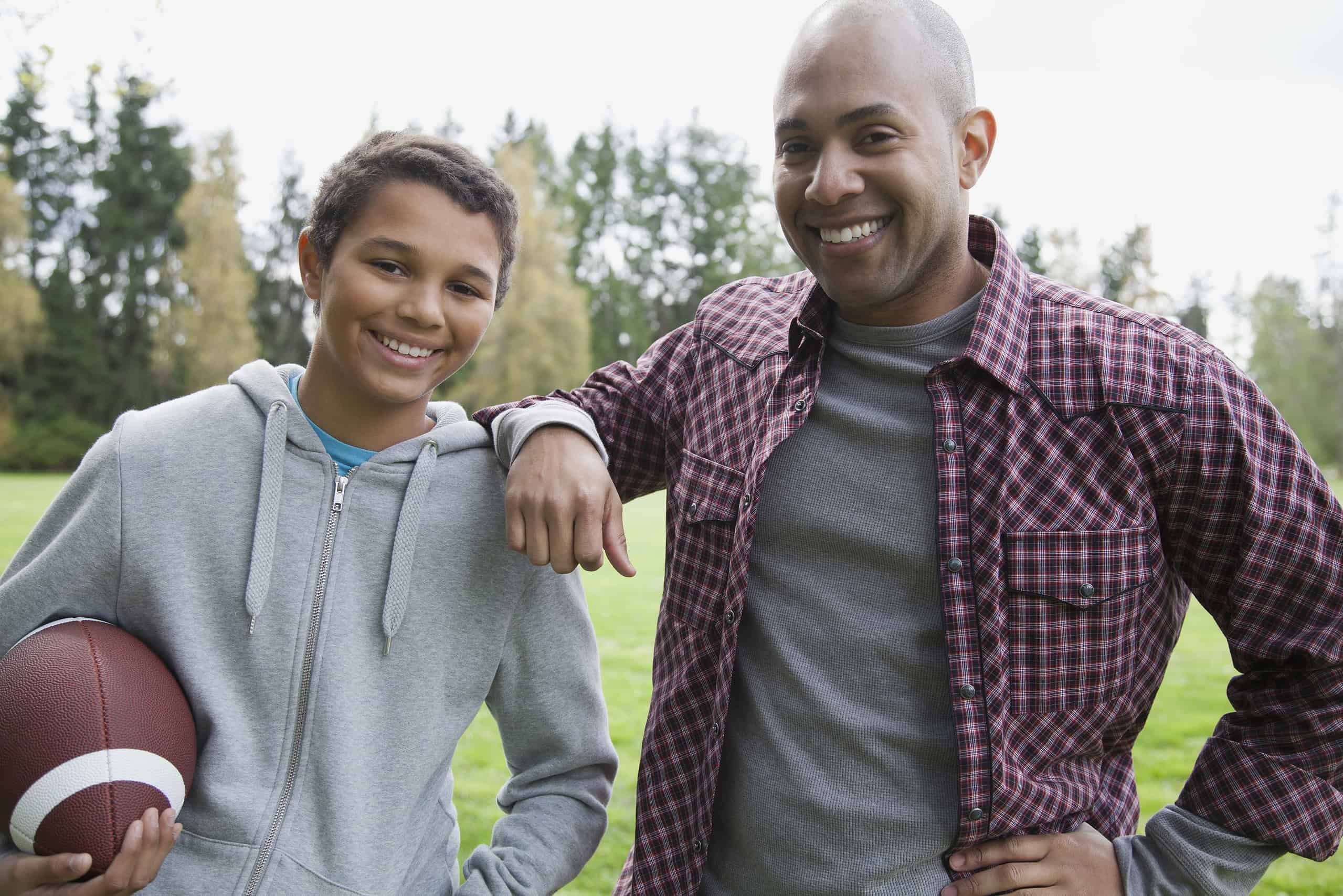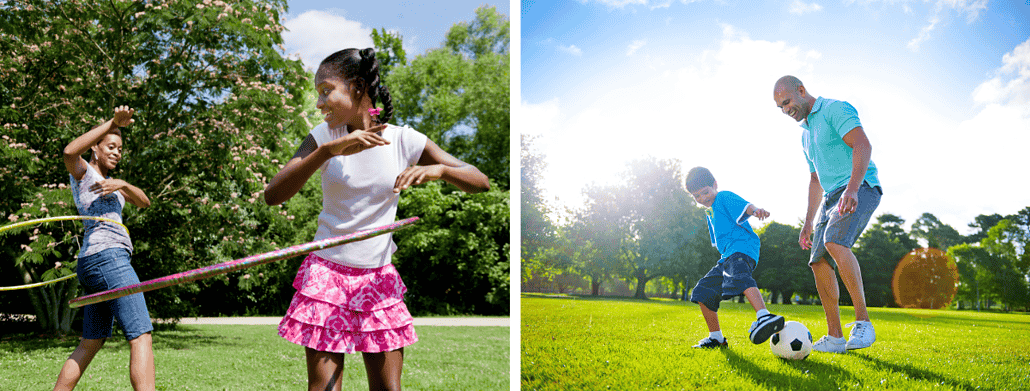
Mentor a Child
Mentoring and coaching a child are great ways to make a difference! All it takes is a few hours and a couple times a month to make a lasting impact on a child’s life.
Friends First aims to positively affect the lives of children, mentors, and families. We focus on engaging youth in fun, purposeful activities through mutually rewarding mentoring relationships that result in positive, lasting change for all involved. In addition, our mentoring experience exposes youth to group and one-on-one opportunities to build on their strengths, develop skills, increase self-esteem, and nurture social relationships in order to help them reach their full potential as members of the community.
Friends First serves youth between the ages of 9 and 17 who come from the city of Chicago and nearby suburbs. A majority of our referrals come from the South and West Side neighborhoods of Chicago. African Americans and Latinos represent over 95 percent of the youth we serve. Our children are predominantly from single-parent and low-income homes.
Friends First screens and trains adult volunteers who wish to mentor a child. We provide ongoing support, oversight, and encouragement to matches. Our match support staff helps to foster significant and life-changing friendships.
If you are 21 or older, patient and a good listener, you already have what it takes to be a successful mentor.

School-Based Program at Rowe Middle School in West Town
Beginning September 2024 and running through the academic year, Friends First will launch a school-based mentoring program with Rowe Middle School, located in the West Town neighborhood. Mentoring will take place at the partner school, every other Tuesday, from 3:30 to 5:00 p.m., with students from grades 5 through 8.
Mentoring sessions will focus on engaging youth in fun, purposeful activities through mutually rewarding mentoring relationships that result in positive, lasting change for all involved. All mentoring sessions through the school-based program will be facilitated by Friends First.
To take the first step in becoming a mentor, please sign up for an info session below or contact Katie Gunter at katgun@mercyhome.org or 312-738-9602.
Community-Based Program
Our Community-Based mentoring program involves traditional one-on-one mentoring throughout the community. Each mentor is matched with one mentee who they meet with in person 1-2 times each month, with virtual and phone contact in between outings, over the course of one year.
Community-based matches have mentors picking youth up at their homes and then going out for outings. Friends First outings range from a visit to an art museum to a stroll on a college campus to simply playing Frisbee in a park. Through connection with a trusted adult and exposure to activities, a child can develop a better vision for their future beyond the limited horizons that hold back far too many children.
A Friends First Match Support Liaison provides regular contact and support on a monthly basis to discuss match progress, successes, questions and concerns.
To take the first step in becoming a mentor, please sign up for an info session below or contact Katie Gunter at katgun@mercyhome.org or 312-738-9602.
Application Process
Step 1: Info Session
Create an online mentor account and sign up for a virtual info session. At this time you will learn about the mentor commitment and program expectations.
Step 2: Application
Once you’ve completed the info session you will be prompted to complete your online mentor application using the same online mentor account previously created.
Step 3: Interview
Submit your online mentor application and someone from our Friends First team will reach out to you to schedule an interview.
Step 4: Training
After completing your mentor interview with Friends First staff, you will need to complete the following steps: (1) You will need to get fingerprinted (Instructions to do so will be found in your online mentor application 2) You will need to complete two online trainings to help prepare you for your mentoring role. Friends First staff will invite you to the trainings once you have completed the fingerprinting requirement.
Step 5: Matching
Complete your matching preferences and get matched with a Friends First mentee.
How Mentors Receive Support
To ensure successful, meaningful matches, Friends First staff offers support above and beyond what is provided in typical mentoring programs, including regular check ins to discuss match progress, questions and concerns. Continuous training opportunities are provided to ensure our mentors are supported in their roles.
Research shows that youth with mentors are:
50%
More likely to attend college
46%
Less likely to use drugs
27%
Less likely to use alcohol
“I wanted to find a perfect organization that would reflect something that I was looking for when I was a newly arrived immigrant. Mercy Home and Friends First gave me an opportunity to be useful to somebody in the same way that I wanted somebody to be useful to me.”
Yulia, Friends First Mentor
“I love Friends First. I’m actually recruiting quite a few of my friends to get them involved. The Friends First staff make it very easy by providing materials, ideas, and recommendations for outings. The program fits into my life very easily. I really enjoy it and look forward to it every other week.”
Jake, Friends First Mentor
“My mentor is super funny! He is very kind and awesome. I love hanging out with him. My favorite things we did last year were going to the arcade and going mini golfing.”
Josh, Friends First Mentee
“Mercy Home’s Friends First Mentoring Program has encouraged my daughters to be themselves and love themselves as well. It really has inspired my youngest daughter and raised her self-esteem. Never doubt that a small group of thoughtful, committed citizens can change the world. They can – just like they do at Friends First – by encouraging another, one person at a time. Thank you, Mercy Home.”
Mrs. Stephanie, parent of Friends First Mentees
Interested in becoming a Friends First Mentor?
Frequently Asked Questions
What is Mercy Home’s Friends First Mentoring Program?
Friends First matches mentors and positive role models with at-risk kids in the Chicago area to create a foundation of encouragement. These kids face many challenges but may not require placement in a residential treatment setting like Mercy Home for Boys & Girls. Instead, the additional support of a trusted friend may be enough for an underserved kid to find the confidence they need to thrive.
Mercy Home responds to their need through our Friends First Mentoring Program, serving youth throughout the city of Chicago and nearby suburbs who live at home with their own families. Mentees often come from single-parent households with economic struggles or from neighborhoods with limited resources and opportunities.
Mentors support their mentee in gaining self-confidence, finding direction, and resisting negative peer pressure. They expand their mentee’s horizons through shared activities. Many of these young people have never ventured outside of their own neighborhood prior to their involvement with Friends First. They benefit by experiencing new things, seeing new parts of the city, and having a friend to lend an ear and lead by example.
Who are the mentors? Do I need any special skills to be a mentor?
Friends First mentors are adult volunteers from all over the Chicago area who work in a variety of professions. Mentors come from all adult age groups and all walks of life but are united by their desire to make a difference in the lives of young people.
Mentoring isn’t about having a special talent—it’s about being yourself. If you are at least 21 years old, are patient, a good listener, and can be a positive role model, you already have what it takes to be a good mentor.
How are mentors selected?
All mentors must attend an information session and go through a careful screening process. Mentors must complete an interview, an online application, be fingerprinted with the State of Illinois, and undergo an online background check. Mentors also must attend a mentor orientation training and a training on preventing child sexual abuse.
The screening process can take a minimum of 4-8 weeks, based on a mentor’s initiative in completing these necessary requirements.
What types of activities do Friends First matches enjoy?
Our matches can be found playing sports in a park, visiting a local library, touring a museum, participating in cultural events, enjoying the zoo, or walking along the 606 trail. We encourage matches to choose free or low-cost activities that foster communication, confidence, and empowerment. We offer periodic group activities and provide a book called 102 Things to Do With Two to all new matches.
With whom will I be matched?
The kids in Friends First are willing participants who are eager and excited about having a mentor in their life. Our youth may have low self-esteem and struggle socially, but positive one-on-one attention from caring mentors can help change that. Often, our mentees simply want to broaden their horizons and have new experiences.
Our kids range in age from nine to 17 but are commonly between 11 and 15 years old.
What is the time commitment for mentors?
Community based matches meet at least once a month in-person to go on outings and commit to connecting virtually an additional 2 times a month. Matches commit to the mentoring relationship for at least one year. Weekend availability is required.
School based matches meet at the partner school, every other Tuesday, from 3:30 to 5:00 p.m. Matches commit to the mentoring relationship for the academic school year (September to June). Tuesday availability is required.
How are kids referred to Friends First?
Most of the youth in our program are referred by parents who recognize that their child will benefit from additional positive influences. We also receive referrals from schools and social service agencies.
Do I need a car to be a mentor?
Having access to a car is highly recommended for being matched in the Community-Based program.
If you do not have a car, we will make an effort to match you with a child who lives near public transportation. Please keep in mind that the ease by which we match you will depend on your openness to travel to different areas of the city and how far you are willing to travel. Owning a car can reduce travel time and open up more matching possibilities as many of our referrals come from areas not easily accessible via public transit.
How many kids are on the waiting list?
We currently have a number young people on our waiting list, all of whom are boys waiting to be matched with male mentors.
Our wait list alone illustrates an essential request: Friends First needs more male mentors.
The majority of people who volunteer to become mentors are women. Since
Friends First only makes same-gender matches, one of our challenges is finding enough men to accommodate our list of boys.
How will I know I’m making a difference?
We would all love to see the immediate impact of our actions in the lives of young people, but change can take time. The full impact we make might show up years later. If you have an eye for small moments of hope and change, then you’ll know you are making a difference.
However, studies show that children who are mentored are:
- 55% more likely to be enrolled in college
- 81% more likely to report participating regularly in sports or extracurricular activities
- 78% more likely to volunteer regularly in their communities.
- More than twice as likely to say they held a leadership position in a club or sports team.
I know a child who might benefit from having a mentor? How can I make a referral?
If you know of a child who you think could benefit from mentoring, please contact Friends First at 312-738-9602 to make a referral.